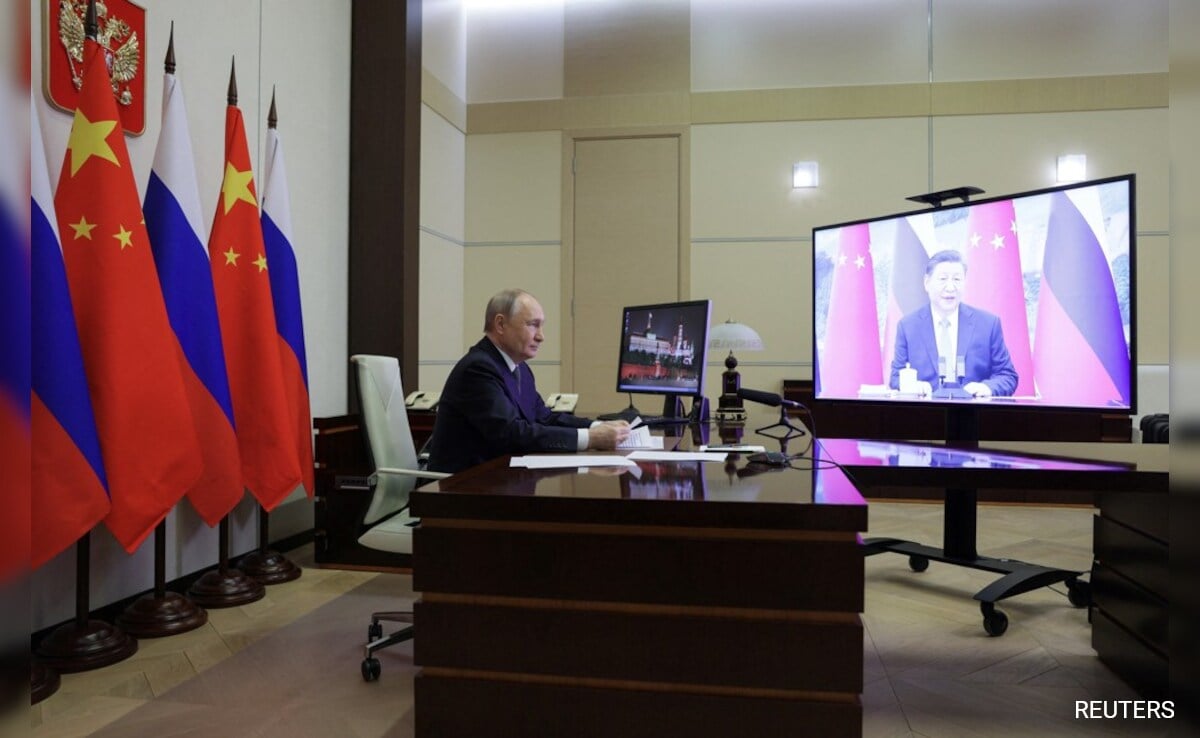Moscow and Beijing Forge a New Era of Partnership Amid Global Tensions
In a significant display of solidarity, Russian President Vladimir Putin engaged in a video call with his Chinese counterpart, President Xi Jinping, just hours after the inauguration of Donald Trump as the 47th president of the United States. This meeting underscores the deepening ties between Russia and China at a time when both nations are under increasing pressure from the West. Putin extended a warm greeting, addressing Xi as his “dear friend,” and emphasized their commitment to enhancing the already robust Russian-Chinese strategic partnership.
The conversation between the two leaders primarily focused on solidifying their comprehensive partnership and strategic cooperation. Putin articulated a vision for further collaboration, stating, “I want to outline new plans for the development of the Russian-Chinese comprehensive partnership and strategic cooperation.” The video call marks an essential moment in international politics, highlighting the growing alliance between the two nations as they navigate a complex global landscape.
This pivotal conversation occurred against the backdrop of heightened geopolitical tensions and military conflicts. Russia’s ongoing military operations against NATO-supported Ukrainian forces, combined with China facing mounting challenges from U.S. efforts to counter its expanding military and economic influence, have propelled both nations into a stronger alliance.
The Strengthening Bond: Trust, Friendship, and Shared Interests
Putin emphasized the importance of the robust bond between Moscow and Beijing, asserting that their cooperation is founded on mutual trust, friendship, and shared national interests. He noted that their relationship is characterized by a convergence of perspectives on the dynamics between major global powers, stating, “We build our ties on the basis of friendship, mutual trust and support, equality and mutual benefit.”
The Kremlin also released footage from the meeting, showcasing the camaraderie between the two leaders. As they discussed their mutual interests, Putin highlighted the self-sufficiency of their connections, indicating that these ties are impervious to domestic political influences or shifting global circumstances. This resilient partnership is increasingly seen as a counter to what both leaders perceive as a declining West.
Historically, both Putin and Xi have positioned themselves against the backdrop of the West’s influence. The leaders have often criticized the legacy of European imperialism and the subsequent challenges posed by Western democracies to their respective nations. Their shared narrative also hinges on the “humiliations” stemming from the 1991 Soviet collapse and the century-long impacts of colonialism on China.
Global Reactions: The West’s Perspective on Rising Autocracies
This burgeoning partnership has not gone unnoticed by the United States and its allies. The U.S. government has long viewed China as its primary economic competitor and Russia as one of its most significant geopolitical threats. With former U.S. President Joe Biden emphasizing that democracies worldwide face growing challenges from “autocracies” like Russia and China, the reactions from Washington reflect a strategic concern regarding the alliance being forged between these two powerful nations.
The connection between Moscow and Beijing is not merely ideological; it is also rooted in a pragmatic approach to international relations. Both nations have leveraged their geopolitical situations to present a united front against perceived Western imperialism. Their cooperation has been further strengthened by mutual economic interests, particularly in energy and infrastructure development.
According to reports, the defense and military sectors have also become focal points for collaboration between Russia and China, with both countries conducting joint military exercises and sharing technology. As per the report by Reuters, this trend is expected to continue as both nations seek to bolster their military capabilities in the face of Western opposition.
Looking Ahead: The Future of Russo-Chinese Relations
As the world grapples with the implications of this strengthened partnership, analysts speculate about the future trajectory of U.S.-Russia and U.S.-China relations. Should Moscow and Beijing continue to deepen their ties, the geopolitical landscape could witness substantial shifts, impacting global trade, security arrangements, and international diplomacy.
Further complicating matters, the recent call demonstrates that both leaders are committed to transcending past grievances and navigating their respective national interests with a unified approach. As they seek to counter Western influence, the groundwork laid during this meeting signals a potential reconfiguration of alliances in the coming years.
In conclusion, the rapport established between Putin and Xi could play a critical role in shaping international relations in the near future. As both nations continue to navigate the complexities of global politics, their partnership not only offers strategic advantages but also provides a counterbalance to Western perspectives on democracy and governance.
To explore more on the topic, refer to the related articles on HamsLiveNews and learn about the evolving dynamics of international alliances in today’s political climate. For further insights into Russia’s military maneuvers and their implications, refer to this comprehensive analysis on BBC News and keep an eye on the unfolding developments on Al Jazeera.


